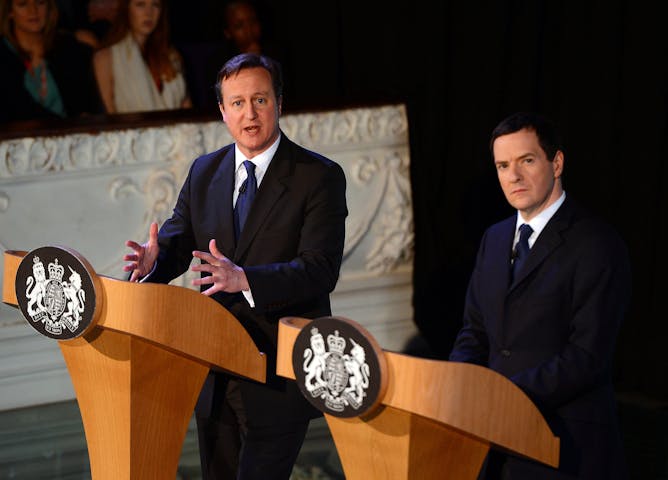|
|
|
|
The evolutionary process of natural selection helps the fittest to survive. In the past 18 months, we’ve all become acutely aware of this relentless process as it played out in the coronavirus – spawning fitter variants at a rate that is hard to keep up with.
But there is another, lesser-known evolutionary process called “unconscious selection”. This is where human interactions with the environment have accidental evolutionary effects. An example is delaying the second COVID jab by a couple of months. A single dose of Pfizer or AstraZeneca can have an effectiveness against the now-dominant delta variant of as low as 33.5%. This means, in delaying the second dose, the UK government may have inadvertently given delta a window of opportunity to spread and mutate, according to an expert in evolution and global health.
It would be nice to think that a simple change to our diets could protect us from COVID-19, which is perhaps why there was so much excitement when a recent study found a link between a plant-based diet and a lower risk of getting moderate-to-severe COVID. But, if it sounds too good to be true …
The Tories have implemented the biggest cuts in public spending since the second world war, so how come they still enjoy such strong electoral support? It’s all about being better at the “austerity narrative”.
|
Clint Witchalls
Health + Medicine Editor (UK edition)
|

|
|

A woman hands out self-test kits at a COVID testing centre in Bolton, England.
PA Images/Alamy Stock Photo
Jonathan R Goodman, University of Cambridge
Why it's important to pay attention to evolutionary theory when considering population health.
|

Dejan Dundjerski/Shutterstock
Duane Mellor, Aston University
A new paper suggests that plant- and fish-based diets lessen the chance of developing severe symptoms – but hold off from becoming vegetarian or pescatarian for now.
|

Cameron and Osborne: architects of austerity.
Alamy
Kate Harrison, King's College London
The idea that funding cuts were inevitable and necessary is pervasive.
|
Politics + Society
|
-
Paresh Wankhade, Edge Hill University
New regulations, training systems and research are underway but there's much still to be done.
-
Shir Shimoni, King's College London
Even though the media exposed the negligence that led to so many elderly deaths, it continues to portray old people as faceless and voiceless, contributing to the insidious spread of ageism.
-
Martin Farr, Newcastle University
Eighty years after Churchill and Roosevelt established the Atlantic Charter, Biden and Johnson have pressed the 'reset' button.
-
Billy Melo Araujo, Queen's University Belfast
Tensions over a possible 'sausage war' between the UK and EU are brewing. How will leaders solve this Brexit-imposed trade dispute?
|
|
Science + Technology
|
-
Sander van der Linden, University of Cambridge; Jon Roozenbeek, University of Cambridge
Many scientists believe attention is the key to tackling fake news – and that a form of 'priming' can help.
-
Roger Whitaker, Cardiff University
We used computer models to study the evolutionary benefits of identity fusion.
|
|
Health + Medicine
|
-
Eleftheria Kodosaki, Cardiff University; Aurora Veteleanu, Cardiff University
The first drug targeting Alzheimer's disease has been approved in 20 years – but its approval isn't based on substantial evidence.
-
Rob Reddick, The Conversation
Though the British prime minister has called on countries to share more doses internationally, the UK may continue to prioritise its domestic rollout.
|
|
Arts + Culture
|
-
Richard Alston, Royal Holloway
The Atlantic slave trade isn't Britain's first brush with forced labour.
-
Piers Mitchell, University of Cambridge; Jenna Dittmar, University of Aberdeen
The English paid a high price for medieval fashion: in bunions and broken bones.
|
|
Business + Economy
|
-
Simon Chadwick, EM Lyon; Paul Widdop, Leeds Beckett University
Much of the money that pays for the competition is spent to build global brands.
|
|
Environment + Energy
|
-
Vartul Sangal, Northumbria University, Newcastle
The bacteria which causes the infection in yellow-eyed penguins is closely related to a human pathogen.
|
|
| |
Featured events
|

|
Online, Birmingham, Birmingham, B15 2TT, United Kingdom of Great Britain and Northern Ireland — University of Birmingham
|

|
Online, Plymouth, Plymouth, PL4 8AA, United Kingdom of Great Britain and Northern Ireland — University of Plymouth
|

|
University of Essex, Wivenhoe Park, Colchester, Essex, CO4 3SQ, United Kingdom of Great Britain and Northern Ireland — University of Essex
|

|
University of Essex, Wivenhoe Park, Colchester, Essex, CO4 3SQ, United Kingdom of Great Britain and Northern Ireland — University of Essex
|
|
|
|
| |
| |
| |
| |
| |
|
|
|
|
|
|
|